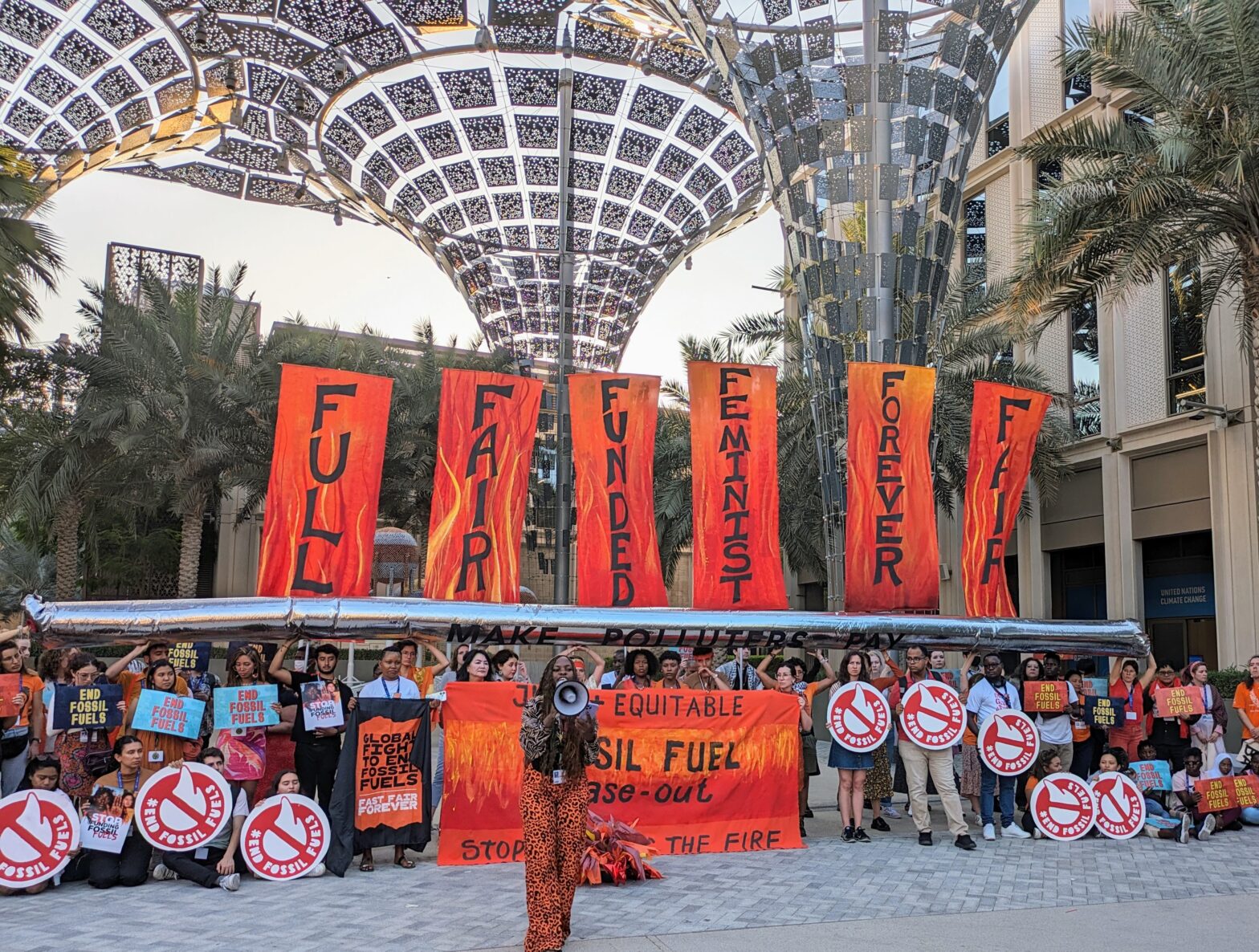Sarah Hautzinger (Professor of Anthropology)
Each year, the signatory countries to the 2015 Paris Agreement and previous conventions gather in what is called a “COP,” for Conference of the Parties. COP28 in Dubai (Nov 30-Dec 12) is hosting a jaw-dropping number of attendees, reaching over 100,000 registered delegates (with some 3,000 registered virtually). By comparison, last year in Egypt hosted nearly 50,000. The first COP, convened in 1995 in Berlin, had just under 4,000 attendees.
When the nine civil-society constituencies met with the SB (Subsidiary Bodies) co-chairs on December 3 (day four of the COP), Tracy Bach of RINGO (Research and Independent NGOs, CC’s home constituency) asked about accessibility issues. The importance of Observer Organizations participating in negotiations has long been acknowledged, but one can wait for hours in a line to be denied access, or be seated in a negotiation and then told to leave when more “Party” members (from the governments) show up.
“We are not the problem,” Bach said of the observer organizations. This year, she cited, members of the Parties (governmental officials) comprise about 24,000 delegates, whereas “Party Overflow” delegates (often friends and families of government) tally over 27,000. By contrast, Observer Organizations account for just about 14,000 delegates, most of whom are actively engaged in relevant work.
SB Co-Chair Nabeel Munir acknowledged the problem. He added that his native Pakistan “would like to host a COP. But 100,000 people? We simply don’t have capacity. And we are not a small country!”
The critiques of ballooning COPs are multifaceted: It’s become a trade show! The “3-ring circus” aspects are a distraction from the negotiations themselves (regarding implementation of elements of the 2015 Paris Agreement, the required Global Stocktake and so on)! More critically: the presence of petroleum corporations and oil and gas lobbyists compromises the necessary goal of phasing out (or down, depending who’s talking) fossil fuels. It’s become a venue for greenwashing, deal-making and profiteering, critics decry.
Defenders counter that one function of COPs is to engage as many influential actors as possible; climate action efforts require everyone’s participation. Delegates are essential for educating and engaging their home communities, and civil-society participation in particular give a chance for marginalized voices – Indigenous and local “traditional” communities, women, youth – to be heard. For these advocates, an inclusive COP is a more effective COP, logistical challenges aside.
Either way, the diversity of COP28 is a boon for the Colorado College delegation. Our course is titled “COP28 as Ethnographers,” and so a holistic approach to all aspects of COP activities is legitimate for portraying the lived experience of COP28 by a dazzlingly varied array of participants.
